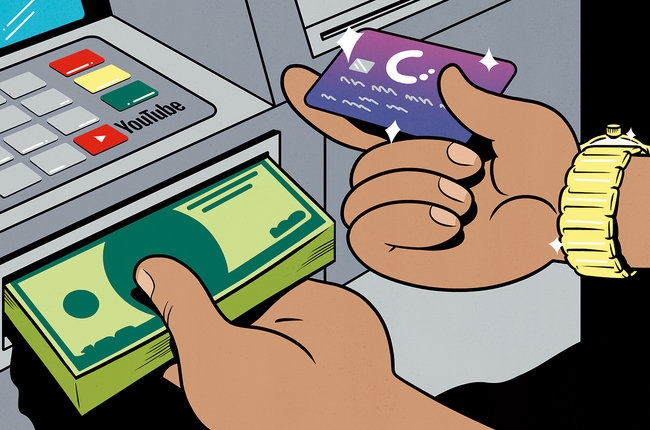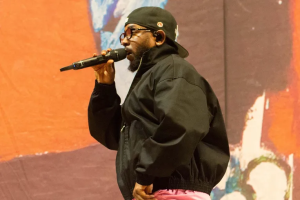Marshmello earned eight figures in 2016, and "when artists are having that type of success, it's extremely hard to convince them that they are missing out on a large amount of revenue," says Create Music Group co-founder/CEO Jonathan Strauss, 31.
But after a year of trying, Strauss finally landed a meeting with Marshmello's manager, Moe Shalizi, and promised that his scrappy startup could help the masked EDM star multiply his YouTube fortunes. "What if we give you guys a six-figure advance, and if we don't double what you're currently making within 90 days, you can keep the money?" Strauss recalls proposing. "Marshmello's [YouTube] revenue tripled in 90 days, and we now support almost every act on Moe's roster."
Since then, the Los Angeles-based company has grown from a YouTube collection specialist into a profitable 75-employee force with tentacles in a range of overlooked opportunities in the music business, from mixtape monetization to video-content creation beyond official music videos. As it raked in $30 million in revenue in 2017, up from $16 million the year prior, CMG purchased a 27,000-square-foot plot of land in Hollywood where a soundstage, five recording studios, a green-screen studio and lounges for -songwriting camps are under construction. The company also acquired the trademark for the musical.ly platform Flighthouse, which had about 1 million teen fans at the time, for $50,000.
Flighthouse now counts 16.8 million followers and, under the direction of 19-year-old Jacob Pace, drives over 1 billion views per month; Marshmello used the platform in 2017 to promote his track "Friends," while Atlantic, Capitol, Republic, Island, Warner Music Group, Interscope and 300 Entertainment have joined as marketing partners over the past six months. (CMG recently launched a YouTube-based Flighthouse channel with original programming in the works.)
As investors pour into the fast-rebounding music business, funding new ventures for veterans like Antonio "L.A." Reid, Doug Morris and Steve Stoute, CMG is a next-generation startup with a focus on prospects for music in the video realm, and its brazen approach is both maddening and attracting some of the old-school executives in charge.
"When we first met with [YouTube global head of music] Lyor Cohen, he said he heard that we were a pain in the ass," says Strauss. "But he could see we were disrupting the industry for the better."

To find unclaimed money for its clients, CMG uses the same basic method as the big record companies - but it has been able to detect more of it using its own software combs and search tricks to identify additional clips that have used music without its clients' permission. (Strauss says competitors aren't "looking in the right places," while CMG also ferrets out money for its artists' tracks that their labels didn't release.) Then the company can claim the client's ownership stake in YouTube's system so that it can monetize views with advertising going forward. In many cases that means taking a cut of the money that had been going to tastemakers such as Trap Nation, curators who often convince acts to agree to let them host their tracks without a license, in exchange for promotion to their millions of viewers. Bot accounts and fans also post unlicensed songs -- often sped up or slowed down just enough to avoid detection by YouTube's own internal rights-tracking system, Content ID, that many copyright owners rely on to monetize their works.
To wring money from mixtapes, CMG's team reaches out to all of a project's contributors and helps them split the copyrights so that they can start getting paid. "A lot of these artists told us they were making more from us than their label was paying them," says Strauss, noting that many are earning $100,000 per month in mixtape income.
An early coup for CMG was recovering revenue for Migos' viral hit "Look at My Dab," originally released in 2015 as a mixtape track on Back to the Bando before it was pushed as an official single through Quality Control Entertainment/300 Entertainment, eventually peaking at No. 87 on the Billboard Hot 100. CMG monetized two music videos for the track that were uploaded to Mass Appeal and WorldStarHipHop's YouTube channels, netting a quick $20,000, while claiming $30,000 for Lil Yachty's "1 Night" before Capitol Records upstreamed it. Future, Young Thug, Post Malone and Quality Control also signed on as clients.
CMG is part of a burgeoning young music-tech scene in Los Angeles, to which 24-year-old Elliot Grainge has helped connect his father, Universal Music Group chairman/CEO Lucian Grainge -- arguably the most important client for any music startup.
"Lucian has been the biggest help to us of any exec," says Strauss, who became "best friends" with Elliot when CMG started collecting revenue for his independent label TenThousand Projects' act Trippie Redd. Strauss and his co-founder, Alexandre Williams, spent time with the Grainges in Miami over the holidays and signed UMG as a client in March.
"We never thought that missing music went all the way up to the majors," says Strauss, estimating that the global music industry is sleeping on hundreds of millions of dollars per year. Landing deals with them isn't easy, he adds. In awkward meetings with major-label data executives, he and his co-founders are tasked with saying: " ‘Your own team isn't doing this correctly. They're not looking at it the right way.' It's a tough pill to swallow for labels."

Now, in addition to assisting UMG with its existing YouTube collection efforts on masters and publishing, UMG vp data and analytics Mitchell Shymansky says that CMG is helping to "analyze streams of data and spot smoke signals that lead to compelling content and talent."
CMG's founders have been hustling since their days together at Palos Verdes High School in California. During his junior year, Strauss purchased and operated a network of vending machines, and in 2008, while studying statistics at the University of California in Los Angeles, he day-traded his $70,000 college fund into a $300,000 E-Trade account before losing it all when Washington Mutual declared bankruptcy that fall. (He then sold his car to fund a venture selling beefed-up Mac computers on Craigslist to Hollywood's post-production elite, earning "a couple of million" over the next few years.)
Williams, a former DJ with the moniker Dirtyrock, turned into a businessman after being swindled by a former manager, becoming a YouTube distribution expert while working at his DJ friend Richard "Lazy Rich" Billis' distribution company, Label Engine. He and Strauss launched CMG inside a rented Lake Hollywood mini-mansion and nabbed a $2.25 million investment from Iraj Parvizi, an Iranian kebab-shop worker turned multimillionaire gambler who was charged and acquitted in a U.K. insider-trading trial in 2016. The pair's first moves were acquiring Label Engine and hiring staffers like 28-year-old DJ Sam Casucci as senior vp of digital strategy, and Flighthouse CEO Pace, who'd joined when he was 16 and working as a freelance publicist from his parents' house in El Paso in his spare time.
"He said he was finishing up school, so my assumption was he's finishing up college," says Williams, who flew him to L.A. for an unspecified business development role. "I get to the airport and he's a lot younger than I thought. I just cradle robbed this dude!"

They also recruited partner & chief business development officer Wayne Hampton, a veteran R&B/hip-hop executive and manager who spearheaded their mixtape business. "Wayne was like, there's all this money here - let's collect a bag," recalls Strauss.
Now they're looking overseas for treasure, where they see endless possibilities. "Russia loves YouTube," says Williams. "We could make a lot of people in Russia a lot of money."
This article originally appeared in the April 21 issue of Billboard.





